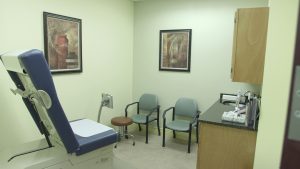Voiding Dysfunction is a general term to describe the condition where there is a lack of coordination between the bladder muscle (detrusor) and the urethra. [Read Full Article…]
Are certain foods helpful in addressing erectile dysfunction (ED)?
 It’s possible. Research published in January 2016 found that men who ate foods high in antioxidants called flavonoids had a lower risk of erectile dysfunction (ED) than those who didn’t eat a flavonoid-rich diet.
It’s possible. Research published in January 2016 found that men who ate foods high in antioxidants called flavonoids had a lower risk of erectile dysfunction (ED) than those who didn’t eat a flavonoid-rich diet.
Flavonoids can be found in certain plant-based foods like citrus fruits, blueberries, strawberries, apples, pears, cherries, blackberries, radishes, and blackcurrant. Some teas, herbs, and wines also have flavonoids in them.
Past studies have shown that consuming flavonoids could reduce a person’s risk for diabetes and heart disease, both of which can lead to ED.
Eating a healthy diet overall, particularly a Mediterranean diet, can go a long way in preserving erectile function, however.
This type of diet includes fruits, vegetables, whole grains, and olive oil. Nuts and fish are good additions.
What does diet have to do with erections?
When a man is sexually-aroused, his penis fills with blood, giving it the firmness it needs for sex. Many men with ED have poor blood flow to the penis. Some medical conditions, like diabetes and heart disease, can damage blood vessels and nerves that are critical for this process.
Eating a healthy diet keeps the body in good working order. It can help men maintain a healthy weight, keep their blood sugar under control, and reduce the risk of blood vessel damage, which can impair blood flow.
Diet isn’t the only path to good erections, however. Other lifestyle habits, like regular exercise, quitting smoking, and managing depression are important too.
A man’s doctor can help him decide which dietary changes to make. However, men who are having trouble with erections should be sure to mention it. Many factors can contribute to ED and it’s best to have a complete medical checkup. [Read Full Article…]
The Prostate Cancer Test That Saved My Life
“Yeah,” he said, in a slightly nonplussed way, gazing at the results, “I was surprised myself.”
As my new, world-altering doctor spoke about cell cores and Gleason scores, probabilities of survival, incontinence and impotence, why surgery would be good and what kind would make the most sense, his voice literally faded out like every movie or TV show about a guy being told he had cancer… a classic Walter White moment, except I was me, and no one was filming anything at all.
 I got diagnosed with prostate cancer Friday, June 13th, 2014. On September 17th of that year I got a test back telling me I was cancer free. The three months in between were a crazy roller coaster ride with which about 180,000 men a year in America can identify.
I got diagnosed with prostate cancer Friday, June 13th, 2014. On September 17th of that year I got a test back telling me I was cancer free. The three months in between were a crazy roller coaster ride with which about 180,000 men a year in America can identify.
Right after I got the news, still trying to process the key words echoing dimly in my head (probability of survival–vival-vival-val…” “incontinence-nence-nence-ence …), I promptly got on my computer and Googled “Men who had prostate cancer.” I had no idea what to do and needed to see some proof this was not the end of the world.
John Kerry… Joe Torre… excellent, both still going strong. Mandy Patinkin… Robert DeNiro. They’re vital. OK great. Feeling relatively optimistic, I then of course had to do one more search, going dark and quickly tapping in “died of” in place of “had” in the search window.
As I learned more about my disease (one of the key learnings is not to Google “people who died of prostate cancer” immediately after being diagnosed with prostate cancer), I was able to wrap my head around the fact that I was incredibly fortunate. Fortunate because my cancer was detected early enough to treat. And also because my internist gave me a test he didn’t have to.
Taking the PSA test saved my life. Literally. That’s why I am writing this now. There has been a lot of controversy over the test in the last few years. Articles and op-eds on whether it is safe, studies that seem to be interpreted in many different ways, and debates about whether men should take it all. I am not offering a scientific point of view here, just a personal one, based on my experience. The bottom line for me: I was lucky enough to have a doctor who gave me what they call a “baseline” PSA test when I was about 46. I have no history of prostate cancer in my family and I am not in the high-risk group, being neither — to the best of my knowledge — of African or Scandinavian ancestry. I had no symptoms.
What I had — and I’m healthy today because of it — was a thoughtful internist who felt like I was around the age to start checking my PSA level, and discussed it with me.
If he had waited, as the American Cancer Society recommends, until I was 50, I would not have known I had a growing tumor until two years after I got treated. If he had followed the US Preventive Services Task Force guidelines, I would have never gotten tested at all, and not have known I had cancer until it was way too late to treat successfully.
Now, in my case, my doctor, Bernard Kruger, watched my PSA tests rise for over a year and a half, testing me every six months. As the numbers continued to rise, he sent me to the urologist, who gave me a slightly invasive physical check in his office using a gloved finger. This took all of 10 seconds. While I don’t recommend it for fun, amazingly some don’t recommend it at all. After this exam, and looking at my rising PSA numbers, he suggested an MRI to get a roadmap of my prostate.
It’s a non-invasive procedure like the one athletes get to check for torn ACLs. Loud, but painless. Only after studying the MRI results did my doctor recommend a not-fun-at-all biopsy. Unlike the MRI, the biopsy was as invasive as it gets: long needles in sensitive places and more small talk about kids and school pick ups while it was all going down.
Then the biopsy came back positive. Of course “positive” for medical tests is usually not so positive. I had a Gleason score of 7 (3+4), which is categorized “mid-range aggressive cancer.” Surgery was recommended. At this point I decided to go out and get a few different opinions. All the doctors I talked to concurred that the tumor needed to be taken out.
Ultimately, I found a wonderful surgeon named Edward Schaeffer who I felt comfortable with. He performed a robotic assisted laparoscopic radical prostatectomy. Due to a lot of skill and a little beneficence from some higher power, he got all the cancer. As of this writing I am two years cancer free and extremely grateful.
So. What is the deal with this PSA test and why the controversy?
It is a simple, painless blood test. It is not dangerous in itself in any way. If the PSA (Prostate Specific Antigen) value is elevated in the blood, or levels rise sharply over time, it could indicate the presence of prostate cancer. It is definitely not foolproof.
The criticism of the test is that depending on how they interpret the data, doctors can send patients for further tests like the MRI and the more invasive biopsy, when not needed. Physicians can find low-risk cancers that are not life threatening, especially to older patients. In some cases, men with this type of cancer get “over-treatment” like radiation or surgery, resulting in side effects such as impotence or incontinence. Obviously this is not good; however it’s all in the purview of the doctor treating the patient.
But without this PSA test itself, or any screening procedure at all, how are doctors going to detect asymptomatic cases like mine, before the cancer has spread and metastasized throughout one’s body rendering it incurable? Or what about the men who are most at risk, those of African ancestry, and men who have a history of prostate cancer in their family? Should we, as the USPSTF suggests, not screen them at all? There is growing evidence that these guidelines have led to increased cases of prostate cancers that get detected too late for the patient to survive the disease.
Five years after their initial recommendation to stop PSA testing, the USPSTF is presently, per their website, “updating their recommendations.” I think men over the age of 40 should have the opportunity to discuss the test with their doctor and learn about it, so they can have the chance to be screened. After that an informed patient can make responsible choices as to how to proceed.
I count my blessings that I had a doctor who presented me with these options. After I chose to take the test, he directed me to doctors who worked at centers of excellence in this field to determine the next steps. This is a complicated issue, and an evolving one. But in this imperfect world, I believe the best way to determine a course of action for the most treatable, yet deadly cancer, is to detect it early.
What Everyone Should Know About Retrograde Ejaculation
Retrograde ejaculation happens when semen enters the urinary bladder during ejaculation instead of moving out through the urethra. It may be caused by diabetes (32% of men with diabetes mellitus have this condition), nerve problems, or surgery of the urethra or prostate. Some medications used for treating high blood pressure, mood disorders and benign prostate hyperplasia are also known to cause this problem.
Symptoms
- Little or no semen is secreted during ejaculation, a condition referred to as a dry orgasm.
- After an orgasm, the urine looks cloudy due to the presence of semen.
- Infertility is common in men with this problem.
Tests to Detect Retrograde Ejaculation
First, the genitals are physically examined for any anatomical defects. Following an exam, a “urinalysis” lab test of a urine sample collected immediately after ejaculation indicates the amount of sperm in the urine.
Treatment Options
In most cases, the diagnosis is carried out by a urologist specializing in urinary tract disorders and male reproductive problems, and the treatment procedure varies depending on the cause of the condition. If retrograde ejaculation occurs as a side effect of medication, discontinuing that medication usually resolves the problem. In cases where retrograde ejaculation occurs as a result of spinal cord injury, genitourinary tract surgery, or nerve damage caused by diabetes mellitus, epinephrine-like drugs are known to help, but the condition may not be completely curable. Although surgery is available, it is rarely a primary treatment for this condition since the results are found to be inconsistent.
Prevention
Diabetic men with this ejaculatory disorder are advised to keep their blood sugar levels under control. Also, diabetics and men with reproductive disorders should avoid medication that is known to cause retrograde ejaculation. If you notice a trace of cloudiness in your urine, you should make an appointment with a urologist right away because the treatments for retrograde ejaculation are more effective when the condition is detected early.
What is UroLift System? – Treatment for BPH (Enlarged Prostate)
Patients with an enlarged prostate can benefit greatly from treatment and care options available in urology clinics. A urologist will examine the patient and assess the severity of the symptoms before prescribing any treatment. [Read Full Article…]
10 Quick Facts About Lithotripsy by St Pete Urology
Lithotripsy is a medical procedure involving the disintegration of kidney stones, gallstones and bezoars using high-energy shock waves. Once the procedure is done, small stone fragments (or gravel) come out through urine. The Extracorporeal Shock Wave Lithotripsy (ESWL), in which the shock waves are produced outside the body, is the most common type of lithotripsy.
10 Quick Facts About Lithotripsy
1. An ESWL is generally done when a stone is too big to move on its own, or when it becomes entrapped in the ureter (the tube carrying urine from the kidney to bladder) causing enormous pain.
2. ESWL is not done on people weighing over 300 lbs, individuals with skeletal deformities, persons with severe bleeding disorders, and pregnant women. Patients with cardiac pacemakers should undergo this treatment only after being approved by a cardiologist.
3. Prior to lithotripsy, a thorough physical examination is done, followed by an intravenous pyelogram (IVP) test to determine the size, location and number of stones.
4. Older individuals should first undergo an EKG (electrocardiogram) test to detect possible cardiac defects. Also, women of childbearing age should take a pregnancy test. Some patients will have a stent inserted into the ureter to allow the passage of gravel through urine.
5. The entire lithotripsy process takes nearly an hour to complete, during which time up to 8,000 shock waves are administered. This may cause some discomfort to the patient based on tolerance level. In most cases, a urologist administers analgesics to relieve the pain.
6. After the treatment, most patients see blood in their urine. This clears out within a week, and patients are advised to drink extra fluids during this period to promote the flushing out of any stone pieces from the urinary system.
7. Patients should pay a follow-up visit to the urologist two weeks after the treatment to ensure that everything is going as planned. This is also the time when the stents will be removed.
8. The potential risks of the procedure include mild temporary abdominal pain. However, severe or persistent pain could imply an unexpected injury.
9. Renal pain is common when gravel passes through the urine. In about 60% of cases, blood clots may form in the kidney area. Other possible complications are pancreatitis, nerve palsies and obstruction of the stone pieces.
10. Alternatives to lithotripsy involve surgery (although this process has become obsolete) and altering the urine’s pH to dissolve the stones. These treatments, however, have had limited success.

Urology Experts at St Petersburg FL
Male Urology is the medical and surgical field that is especially devoted to the treatment on the urinary tracts of males and on his reproductive health [Read Full Article…]
Erectile Dysnfunction Treatment Options with Dr Reid Graves
Erectile dysfunction (ED, impotence) varies in severity; some men have a total inability to achieve an erection, others have an inconsistent ability to achieve an erection, and still others can sustain only brief erections.[Read Full Article…]
Minimally Invasive Surgery with Dr Laryngakis
The da Vinci Surgical System is a surgical robot that does tiny incisions for precise, minimally invasive procedures. [Read Full Article…]
Inflatable Penile Prosthesis – Reid Graves
Inflatable Penile Prosthesis is a device implanted into the penis to achieve an erection-like state that enables a man to have sexual intercourse [Read Full Article…]









